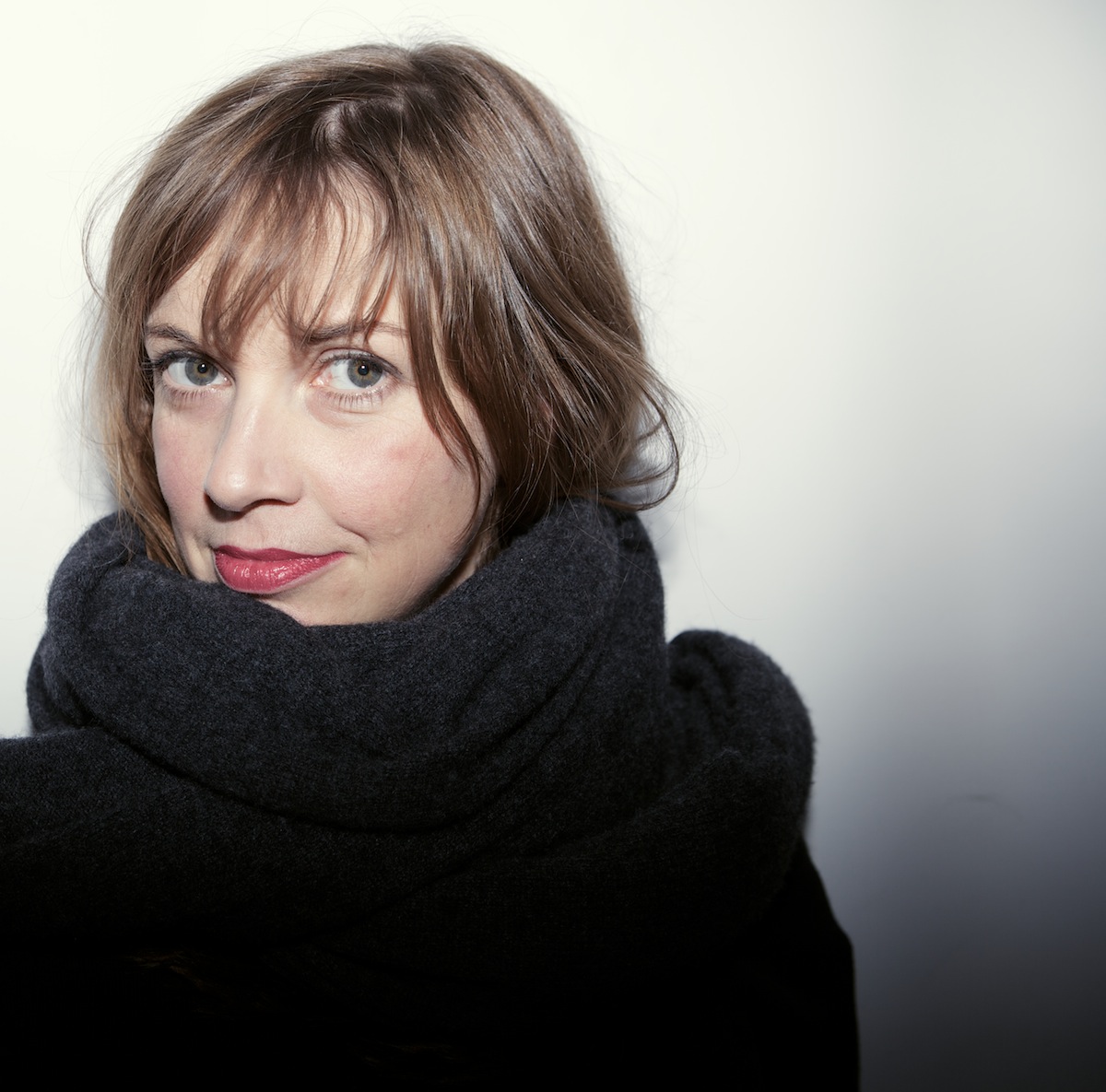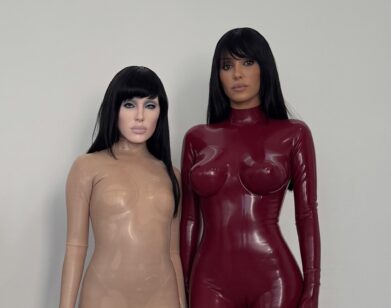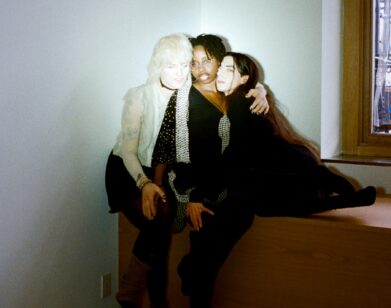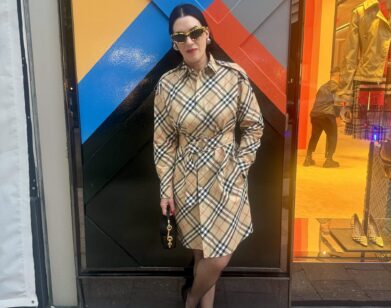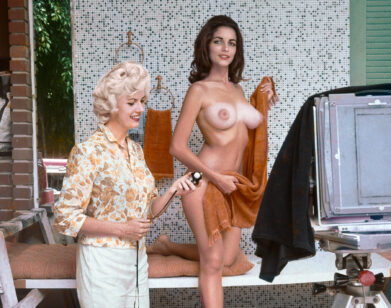At the Garage Center, Performance Meets Life
A century ago this month, a group of Cubo-Futurist artists in St. Petersburg staged Victory Over the Sun, an opera they conceived as a total work of art. Iconic Russian abstract painter Kazimir Malevich designed the stage and the costumes. Poet Alexei Kruchenykh penned a story about Futurist heroes who set out to conquer the sun, metaphorically exploring people’s relationship to technology. Composer and painter Mikhail Matyushin mustered a score with no orchestra, combining a choir of seven people and cacophonous mechanical sounds like rifle shots and airplane crashes. The piece made history. And like many of the art variety that do, it sparked an outrage. Audience members shouted in disgust as the curtain came down. Naturally, it is now viewed as a milestone: Russia’s first avant-garde performance art piece, combining experimental music and aesthetics with live actors.
In light of the 100th anniversary, the Moscow’s Garage Center for Contemporary Culture will hold its first international conference, “Performance Art: Ethics in Action,” from December 12 to 14. Overseen by chief curator Kate Fowle, speakers include Performa founder RoseLee Goldberg, philosopher and New School professor Simon Critchley, as well as a selection of international artists, curators, and writers from Moscow, China, Brazil, Angola, and more. Conversations will explore the historic and current role of performance in Russia, and question the ethical divide between performance art and real life. Architects Ekaterina Golovatyuk and Nicola Russi of Laboratorio Permanente designed the room the conference is to be held in, so “where you get your coffee you can watch a whole lot of [performances] happen,” says Fowle. The conference is also pertinent, the curator explains, because of occurrences like Pussy Riot’s arrest for an unauthorized public show in a Moscow Orthodox cathedral, and more recently the self-proclaimed artist and activist Pyotr Pavlensky nailing his scrotum to Red Square. Whereas 100 years ago, such happenings would be passed along slowly, today they are rapidly disseminated through social media.
Named chief curator of Garage in early 2013, Fowle is interested in the way contemporary art can be understood in Moscow. She’s certainly proven her ability to adopt to new places. Born in Britain and trained as a painter, Fowle started out curating in England, eventually setting up her own business in London in the mid-1990s. In 2003, she moved to San Francisco where she helped establish the Master’s Program in Curatorial Practice at California College of Arts. After a stint in Beijing’s Ullens Center, in 2009 she was named director of Independent Curators International (ICI). She is now director at large, having started at Garage full time in spring of 2013.
We met with Fowle at ICI’s headquarters in New York.
RACHEL SMALL: There must be a lot of back and forth between New York and Moscow.
KATE FOWLE: Yes. I’m not somebody who really suffers that much from jet lag.
SMALL: Oh, that’s very lucky.
FOWLE: It’s mind over matter.
SMALL: You began at Garage relatively recently, at the beginning of 2013. How have you adjusted, as a curator, to Moscow?
FOWLE: One of the main things is understanding what kind of institution Garage needs to be to embed itself in the community. It’s a very different universe now to the way that it was in the ’80s, for example. It’s finding the types of exhibitions and the types of conversations that are most pressing there and how to do it, integrating an art community aside a more general public.
SMALL: What are those conversations?
FOWLE: How do you find a way of introducing different perspectives on what contemporary art is, in an environment where the language isn’t necessarily going to be understood immediately in the way that I think it might be understood? It’s about finding different inroads into communicating what a broader sense of international practice could be.
SMALL: What do you want to address in Moscow, as a curator?
FOWLE: I’m really interested in trying to understand what artists actually want there. It’s a hugely cultured place, people reading a lot. Even in galleries, they’re prepared to read a lot of text. I find that interesting. I mean, it’s incredible having the Bolshoi Ballet there. There’s a lot of theater.
SMALL: How are you drawing on the history of Moscow?
FOWLE: It’s using that as a kind of score while dealing with the “now” of contemporary art in Moscow, we’re actually starting with a projects base next year. The performance conference and then the upcoming exhibition is probably a good example of how we’re dealing with the history. It’s a project that’s been four years in the making. The whole thinking through performance started in around 2010–in terms of making it public. We had a performance festival then, during “100 Years of Performance” (the show that RoseLee Goldberg did), which was at Garage. Basically, we’ve been doing a lot of research. A strong part of the archive and a large part of the archive is based around the history of performance. We held all these roundtable discussions, closed door, with a whole lot of people from the theater, ballet, performance across Russia. It’s actually the hundredth anniversary of Russian performance. Victory Over the Sun is super interesting because it’s one of those projects where now it’s regarded as a big deal, but when it was first presented people booed everybody off the stage. It was all very radical. A lot of the content was about man in relation to technology, which is something that people weren’t necessarily thinking about in 1913. That was why we wanted to do the conference right now, to mark that hundredth anniversary. The conference is looking at [Russian] histories in relation to international practice and what’s actually going on internationally. Thinking about international, [we have] for example an artist coming from Angola, Nástio Mosquito, Laura Lima from Brazil–so international meaning international. Not just USA and Europe.
SMALL: Why else is now the right time for this?
FOWLE: Performance, especially in Russia, is not just about aesthetics. It’s merging ethics and aesthetics together. We have a long conversation about what ethics actually means. Aristotle was the first one to say that ethics is a kind of independent philosophical doctrine that lies between the soul and the state, or in other words between psychology and politics. We’re using that as a starting point in relation to performance and action. Because if you look at the way the artists actually want to start talking about what is happening in real life, performance is the way that they do it. Because of what’s been going on in Russia with Pussy Riot and that type of thing, what does that actually mean? What does it look like in relation to [movements like] actionism or interventionism that’s been happening in the past?
SMALL: I feel like it also raises questions about where the line is drawn.
FOWLE: And where is it performance, where is it not? What’s interesting about Pussy Riot is there’s a whole way in which social media is playing an extremely important part of communicating something out there really fast. In the ’80s, Act Up [AIDS Coalition to Unleash Power] did this event in relation to St. Patrick’s Cathedral [in New York]. But there was no social media at the time. People were arrested, there was a whole load of trouble that went on, but you don’t hear about it in the same way. Whereas with Pussy Riot, there’s a whole question of what it means to the public, and a public—way beyond the art public—get to find out about it very quickly and be divided in what it is that they think and feel about that type of thing. It goes straight into a more real-life conversation. This is the first conference that Garage has done. It’s the first conference on performance in Russia. So it’s just trying to start a conversation there about things.
SMALL: In Russia, is performance art an established, widely accepted form of art?
FOWLE: Not really.
SMALL: I feel like the nature of art performance is that it’s often for a very small audience. It’s fleeting and hard to sort of disseminate, not like the way a single image can be.
FOWLE: We’ll be talking about that in the conference–that side of it and how you capture it. We will be giving different angles on what it actually means to be talking about performance now. The ethics thing is a thread or focus on the fact that if we take ethics as something that is a deciding factor about how you interact with real life and there’s something to do with this soul and state, or psychology and politics. If you put that big thing out there, what does it look like, with people’s responses to it? We’re trying to open up–as I said, this black-and-white “ethics is censorship,” or “ethics is…,” you know. Because it’s not that. It needs to be made more complex for us to actually be able to build the language.
SMALL: How do you think the different perspectives presented will run into each other or contradict or build on each other in this, in this instance?
FOWLE: I mean if you just take the two quotations from Nástio Mosquito and Anatoly Osmolovsky, it’s quite interesting. Because they’re a different generation. And then you place somebody like Tanja Ostojic [from Serbia] and Laura Lima [from Brazil]–they all respond very much to issues that are coming out of where they live and work. I think it’s going to be interesting to see how that starts to build a framework that hopefully is going to shift the way theory or art historical or curatorial perspectives sit. Because I think it’s much easier to talk about it from that perspective than from actually doing it as an artist. So, we’re really hoping that the artist’s voices are going to start create the points, if you like, or the entities the people can fight for and around and within.
SMALL: In general, what are your thoughts on curating performance?
FOWLE: I think there are as many different ways to deal with it as there are performance artists.
SMALL: What do you hope people take away from the conference?
FOWLE: Most exciting to me is that we can have a conversation in the gallery space about practice, with practitioners. There are people coming from a number of different places from around the world that aren’t necessarily the places that you always think of. I think more than anything else I want people to feel like they can have a conversation. The details people take out of it is up to each individual. But the idea of dialogue starting and generating in different ways, I think, is the thing I’m excited to see happen.
SMALL: I feel like by having all these people from all over the world you’re making these connections and bridges and obviously putting the Moscow art scene in a more interconnected context.
FOWLE: That’s the plan.
“PERFORMANCE ART: ETHICS IN ACTION” WILL RUN DECEMBER 12 THROUGH 14 AT THE GARAGE CENTER FOR CONTEMPORARY CULTURE IN MOSCOW.

